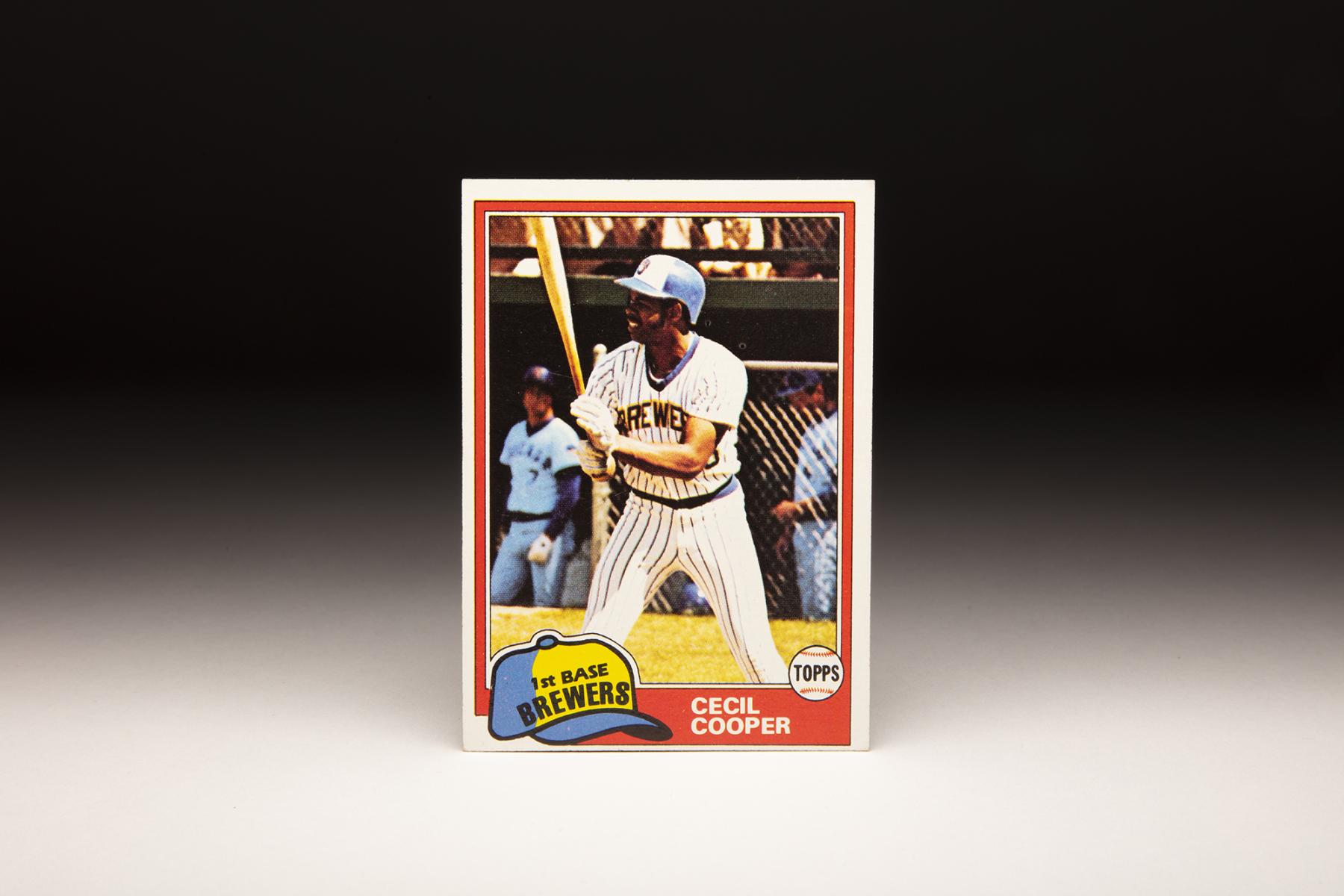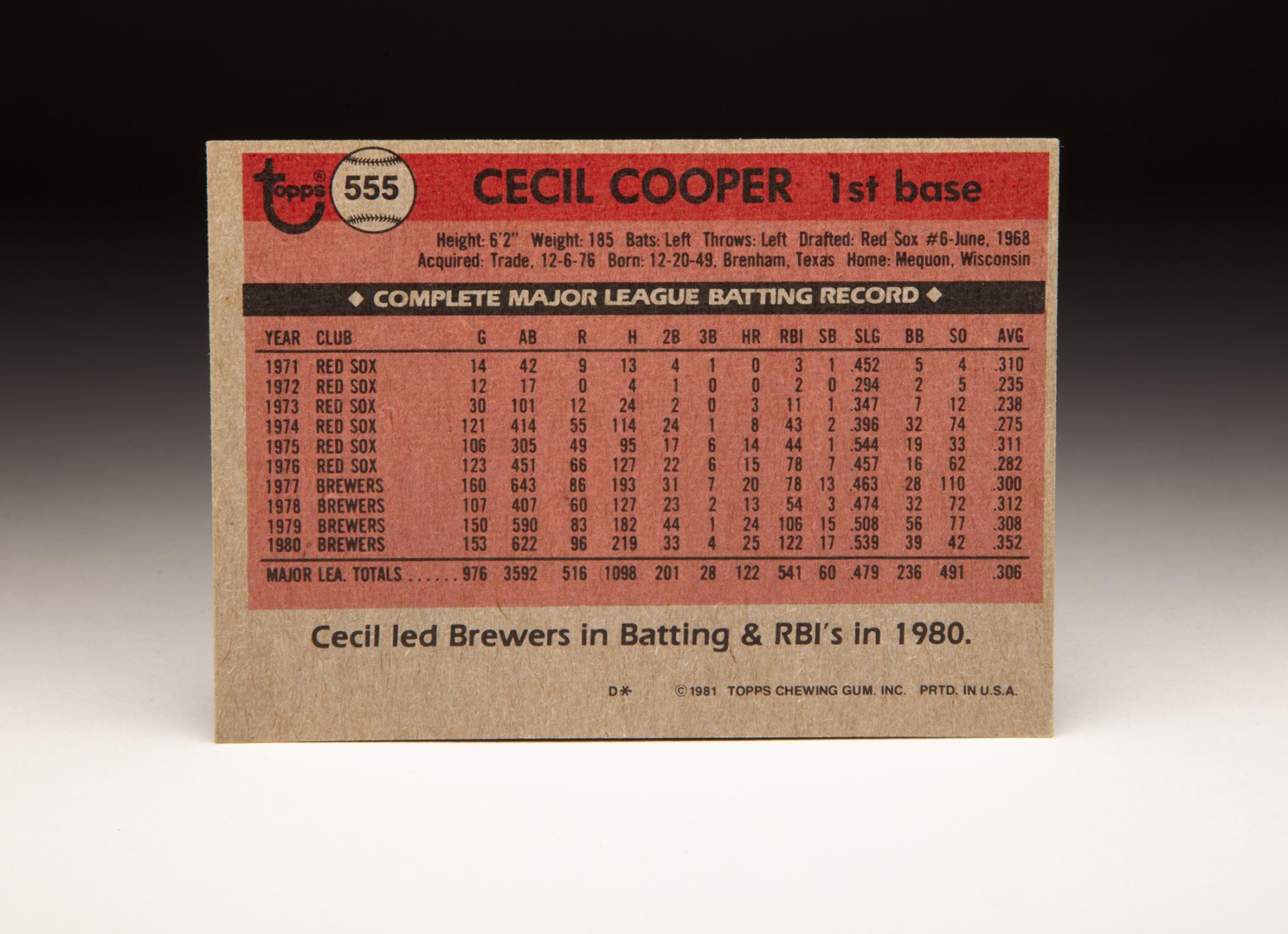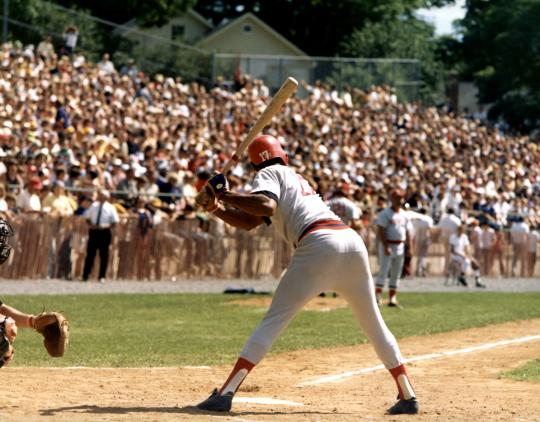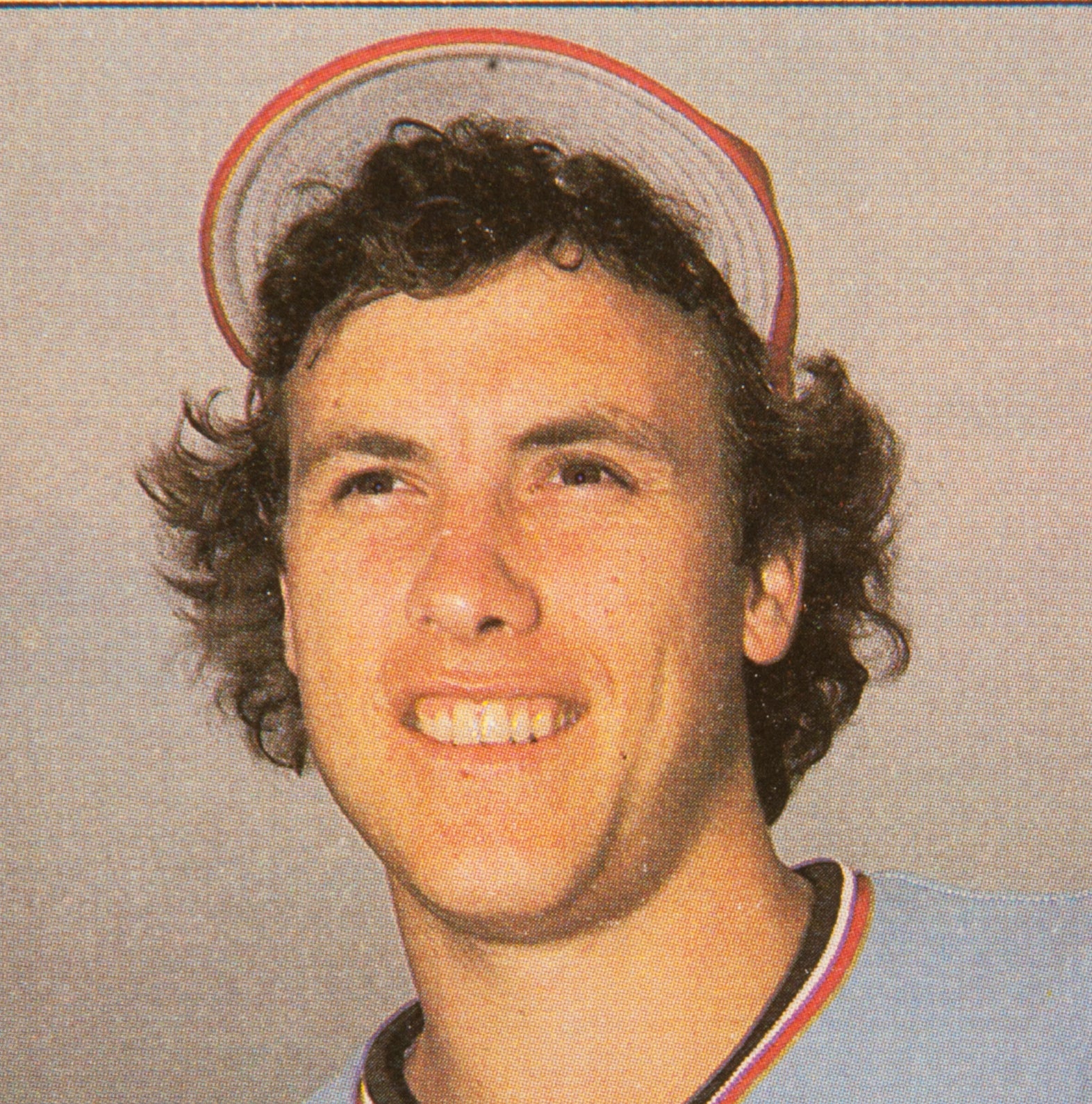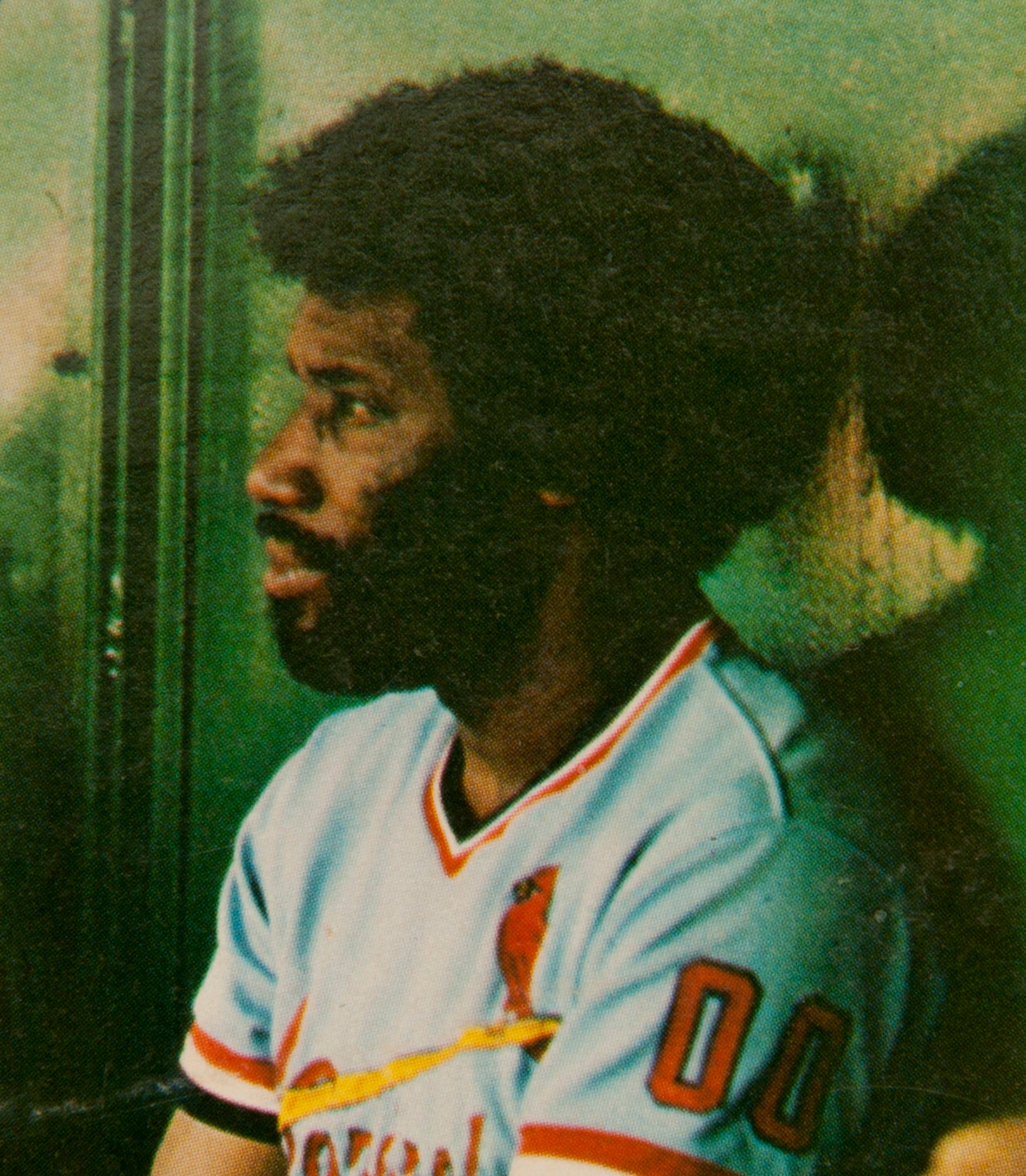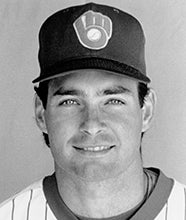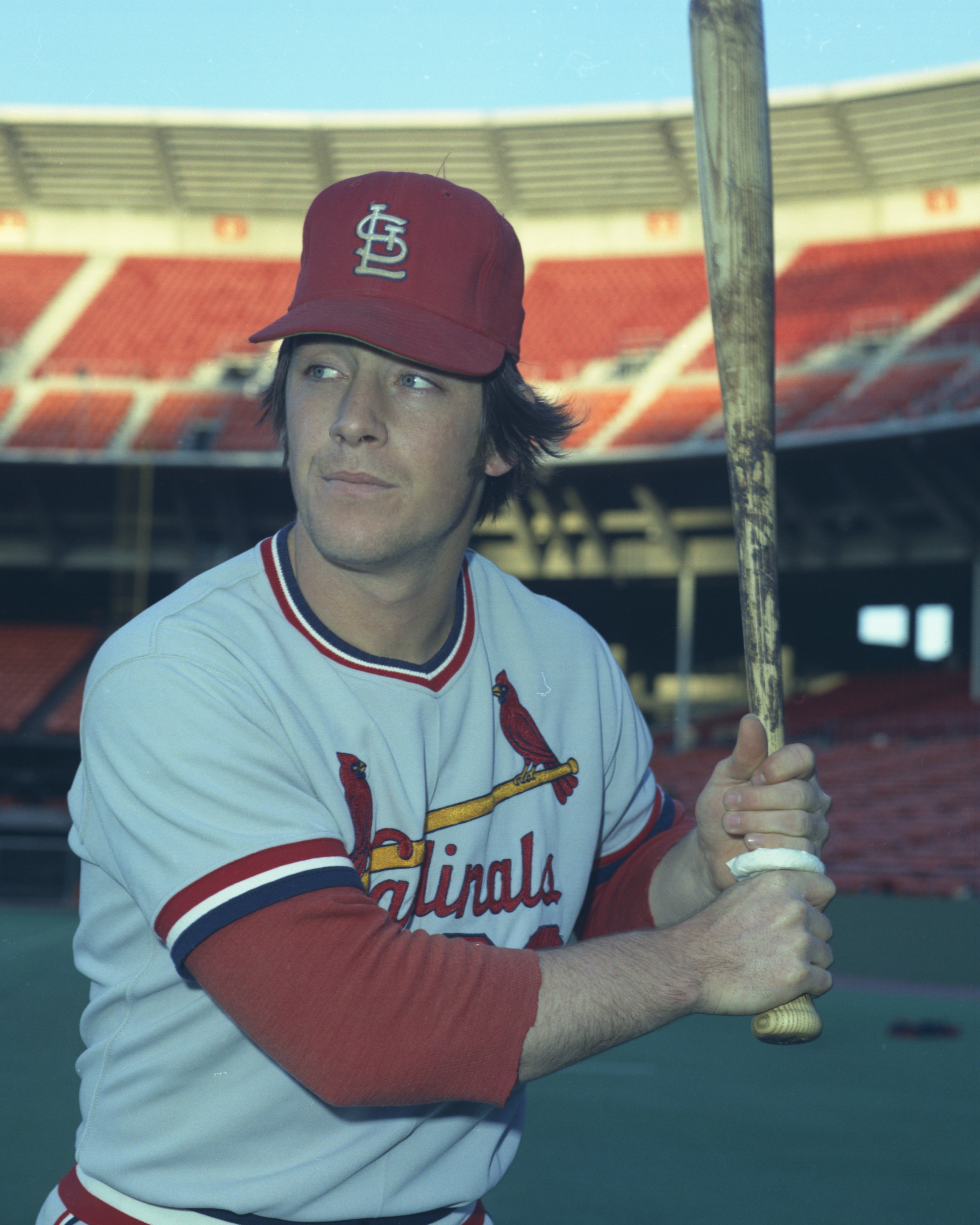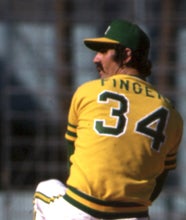- Home
- Our Stories
- #CardCorner: 1981 Topps Cecil Cooper
#CardCorner: 1981 Topps Cecil Cooper
The 1982 Milwaukee Brewers featured an everyday lineup with three future Hall of Famers: Paul Molitor, Ted Simmons and Robin Yount.
Yet it was their unassuming first baseman – Cecil Cooper – who hit out of the prestigious No. 3 hole, powering the Harvey’s Wallbangers team that came within one win of a World Series title.
Hall of Fame Membership
There is no simpler, and more essential, way to demonstrate your support than to sign on as a Museum Member.
The youngest of 13 children, Cooper was born Dec. 20, 1949, in Brenham, Texas. Several of his family members played in the Negro Leagues, and Cooper established himself as a pro prospect in high school. The Red Sox took Cooper in the sixth round of the 1968 MLB Draft and sent him to Jamestown of the New York-Penn League, where he hit .452 in 26 games.
Cooper moved through the Class A ranks in 1969 and 1970, then hit a combined .354 with High A Winston-Salem and Double-A Pawtucket in 1971, earning a late-season call-up to Boston.
The Red Sox kept Cooper in Triple-A for most of the 1972 and ’73 seasons before he earned the Opening Day job at first base in 1974. But Cooper played mostly in a platoon role for the next two seasons, helping Boston with the AL pennant in 1975 while hitting .311 in 106 games.
The left-handed Cooper posted a fine .288 batting average against lefties – just 10 points lower than his career average – throughout his career. But with young outfielders Jim Rice, Fred Lynn and Dwight Evans emerging – and Carl Yastrzemski still a force at the plate – the Red Sox did not commit to Cooper on an everyday basis.
Following the 1976 season – when Cooper hit .282 with 15 homers and 78 RBI in 123 games – Boston traded Cooper to the Brewers in exchange for veterans George Scott and Bernie Carbo. It marked the start of Cooper’s ascent to becoming one of the best players in baseball.
Playing 160 games in 1977 for Milwaukee, Cooper hit .300 with 20 homers, 78 RBI and 86 runs scored. He then missed nearly two months of action in 1978 after suffering a broken right leg against the Blue Jays on June 9 when he collided with Toronto’s Bob Bailor on a play at first base in the top of the 10th inning. But before leaving the game, Cooper singled to lead off the bottom of the 10th – leaving the game in favor of pinch-runner Jim Gantner, who eventually scored the winning run on a Ben Oglivie single.
In 107 games in 1978, Cooper hit .312 with 13 homers and 54 RBI. Then in 1979, Cooper was named to his first All-Star Game en route to a .308 batting average, 24 home runs, 106 RBI, an AL-best 44 doubles and his first Gold Glove Award.
He was even better in 1980, hitting .352 with 25 home runs, 219 hits, an AL-leading 335 total bases and a big league best 122 RBI. He finished fifth in the AL Most Valuable Player voting in a year when MVP George Brett hit .390.
In 1981, Cooper led all of baseball with 35 doubles and was on pace for another season with 300 total bases before the strike wiped out a third of the season. In 1982 and ’83, Cooper topped the 30-homer mark while notching 120-plus RBI and scoring 100-plus runs in both seasons.
From 1979-83, Cooper posted four seasons with at least 20 homers, 100 RBI, a .300 batting average and 300 total bases. If the strike had not happened, he would have had a shot at five straight such seasons.
Here’s the list of players in history with more than five consecutive 20-homer, 100-RBI, .300-average and 300-total base seasons in big league history: Lou Gehrig (11), Albert Pujols (10), Babe Ruth (7), Joe DiMaggio (7) and Miguel Cabrera (6).
Cecil Cooper, quite simply, was one of the best hitters of his era. And his 1982 Brewers were an offensive juggernaut.
Under the relaxed leadership of Harvey Kuenn – who took over from Buck Rodgers as manager 47 games into the season – the Brewers scored 891 runs and featured four players (Cooper, Yount, Oglivie and Gorman Thomas) with at least 100 RBI. A fifth (Simmons) missed the 100-RBI total by only three.
But in the World Series, the Brewers were without All-Star reliever Rollie Fingers, who suffered a season-ending arm injury in early September. It may have proved the difference as St. Louis rallied from a 3-games-to-2 deficit to win the title.
“If Rollie had been healthy in 1982,” Cooper told MLB.com in 2015, “the Brew Crew (would have been) world champions.”
Cooper began showing signs of wear-and-tear in his age-34 season in 1984, hitting .275 with 11 homers and 67 RBI.
He bounced back with a .293 mark with 16 homers and 99 RBI in 1985, earning his fifth-and-final All-Star Game berth. After two more seasons, Cooper called it a career.
He continued to work in baseball and – after several years as a big league coach and minor league manager – took over the reins of the Houston Astros in 2007, managing the club for the equivalent of two seasons. He posted a mark of 171-170 in 341 games.
For his career, Cooper hit .298 with 2,192 hits, 241 home runs, 1,125 RBI and 1,012 runs scored. It was a record shortened by a puzzlingly slow indoctrination as a daily player, some untimely injuries and a labor dispute.
But when Cecil Cooper was at his peak, few swung a bat better.
Craig Muder is the director of communications for the National Baseball Hall of Fame and Museum
Related Stories

#CardCorner: 1981 Topps Tom Underwood
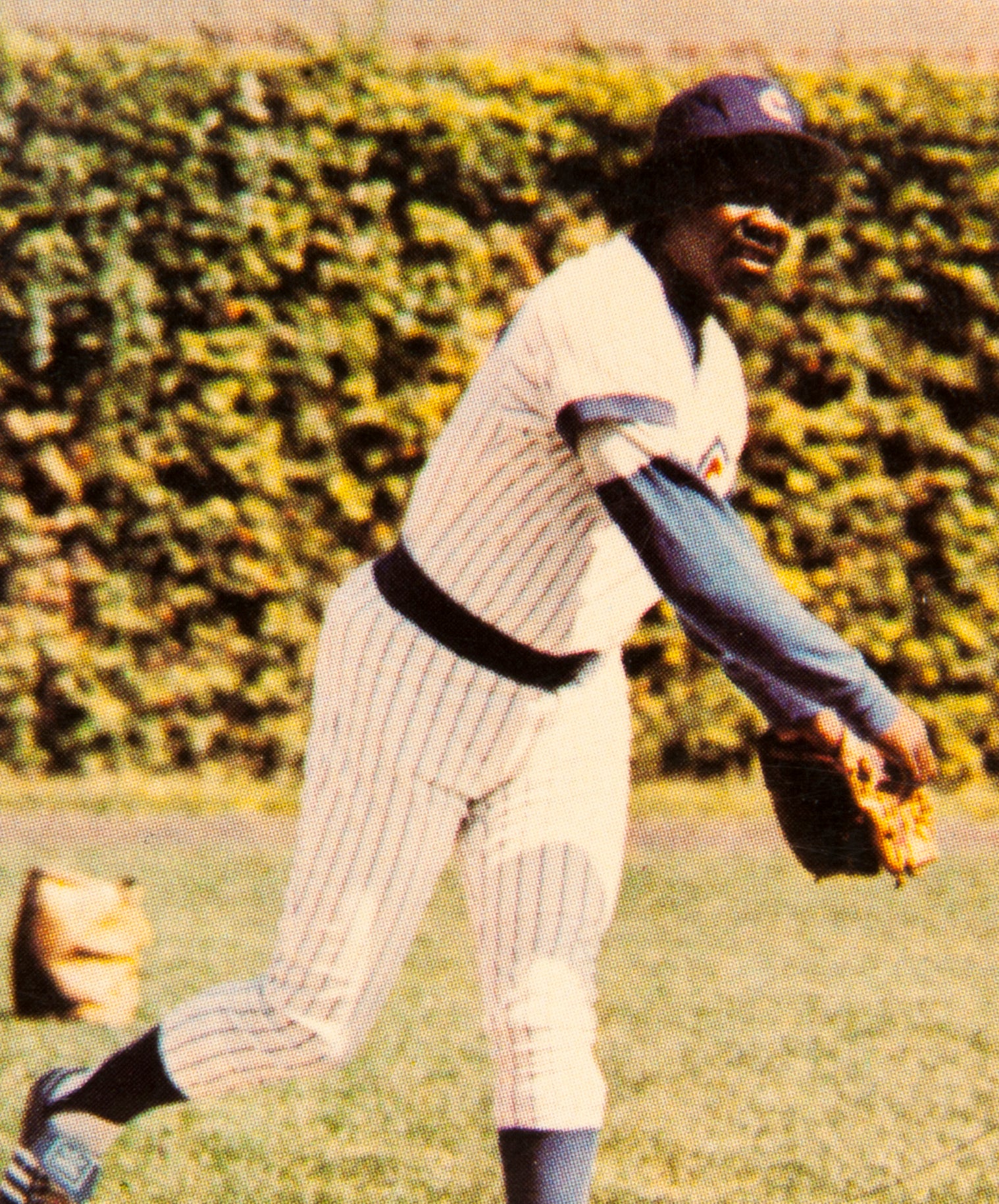
#CardCorner: 1981 Fleer Lynn McGlothen

#CardCorner: 1981 Topps Tom Underwood


